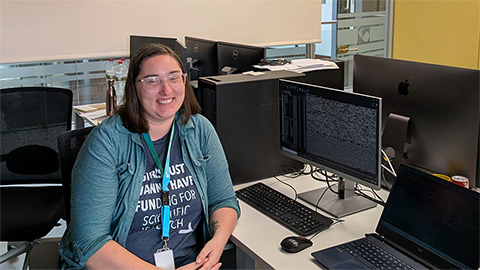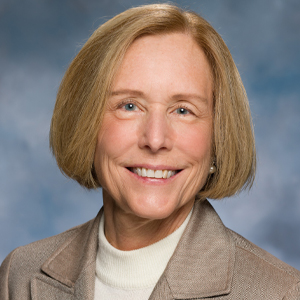
How far we've come
As president of the American Society for Biochemistry and Molecular Biology, I often think about the society leaders who came before me and how they influenced our organization and the science that we do today.
University of Washington colleagues Ed Krebs and Eddy Fischer are two of them. Krebs was president of the ASBMB when I was in graduate school. Fischer served as an editorial board member of our flagship Journal of Biological Chemistry.
Krebs and Fischer trained many future ASBMB members who have continued to make seminal contributions to the field. Indeed, Krebs’ and Fischer’s impacts were legion long before they won the 1992 Nobel Prize in physiology or medicine for describing reversible protein phosphorylation.
In March, I will have the great privilege of presiding over our annual meeting — Discover BMB — in Seattle.
It pleases me to share with you that John Scott, who today chairs the UW department that Krebs once led, and Alexandra Newton of the University of California, San Diego, who is president of the International Union of Biochemistry and Molecular Biology, will host a special event for us.
“ASBMB–IUBMB tribute to Eddy Fischer: Reversible phosphorylation” will be held on Sunday, March 26, and will feature a great lineup of speakers:
- Rachel Klevit, University of Washington.
- Dario Alessi, University of Dundee.
- Smita Yadav, University of Washington.
It will look back briefly on the remarkable discoveries Krebs and Fischer made and, given that we now understand phosphorylation affects all aspects of cellular behavior and that aberrant modification underlies disease, it will look ahead to what’s on the horizon of phosphorylation research, including discovery-based design of kinase inhibitors.
It should be of great interest to students, trainees and researchers from academia and industry, particularly those who are investigating phosphorylation-based signaling mechanisms in disease.
I hope to see you in Seattle and at this event.
Enjoy reading ASBMB Today?
Become a member to receive the print edition four times a year and the digital edition monthly.
Learn moreGet the latest from ASBMB Today
Enter your email address, and we’ll send you a weekly email with recent articles, interviews and more.
Latest in Opinions
Opinions highlights or most popular articles

Women’s health cannot leave rare diseases behind
A physician living with lymphangioleiomyomatosis and a basic scientist explain why patient-driven, trial-ready research is essential to turning momentum into meaningful progress.

Making my spicy brain work for me
Researcher Reid Blanchett reflects on her journey navigating mental health struggles through graduate school. She found a new path in bioinformatics, proving that science can be flexible, forgiving and full of second chances.

The tortoise wins: How slowing down saved my Ph.D.
Graduate student Amy Bounds reflects on how slowing down in the lab not only improved her relationship with work but also made her a more productive scientist.

How pediatric cataracts shaped my scientific journey
Undergraduate student Grace Jones shares how she transformed her childhood cataract diagnosis into a scientific purpose. She explores how biochemistry can bring a clearer vision to others, and how personal history can shape discovery.

Debugging my code and teaching with ChatGPT
AI tools like ChatGPT have changed the way an assistant professor teaches and does research. But, he asserts that real growth still comes from struggle, and educators must help students use AI wisely — as scaffolds, not shortcuts.

AI in the lab: The power of smarter questions
An assistant professor discusses AI's evolution from a buzzword to a trusted research partner. It helps streamline reviews, troubleshoot code, save time and spark ideas, but its success relies on combining AI with expertise and critical thinking.

